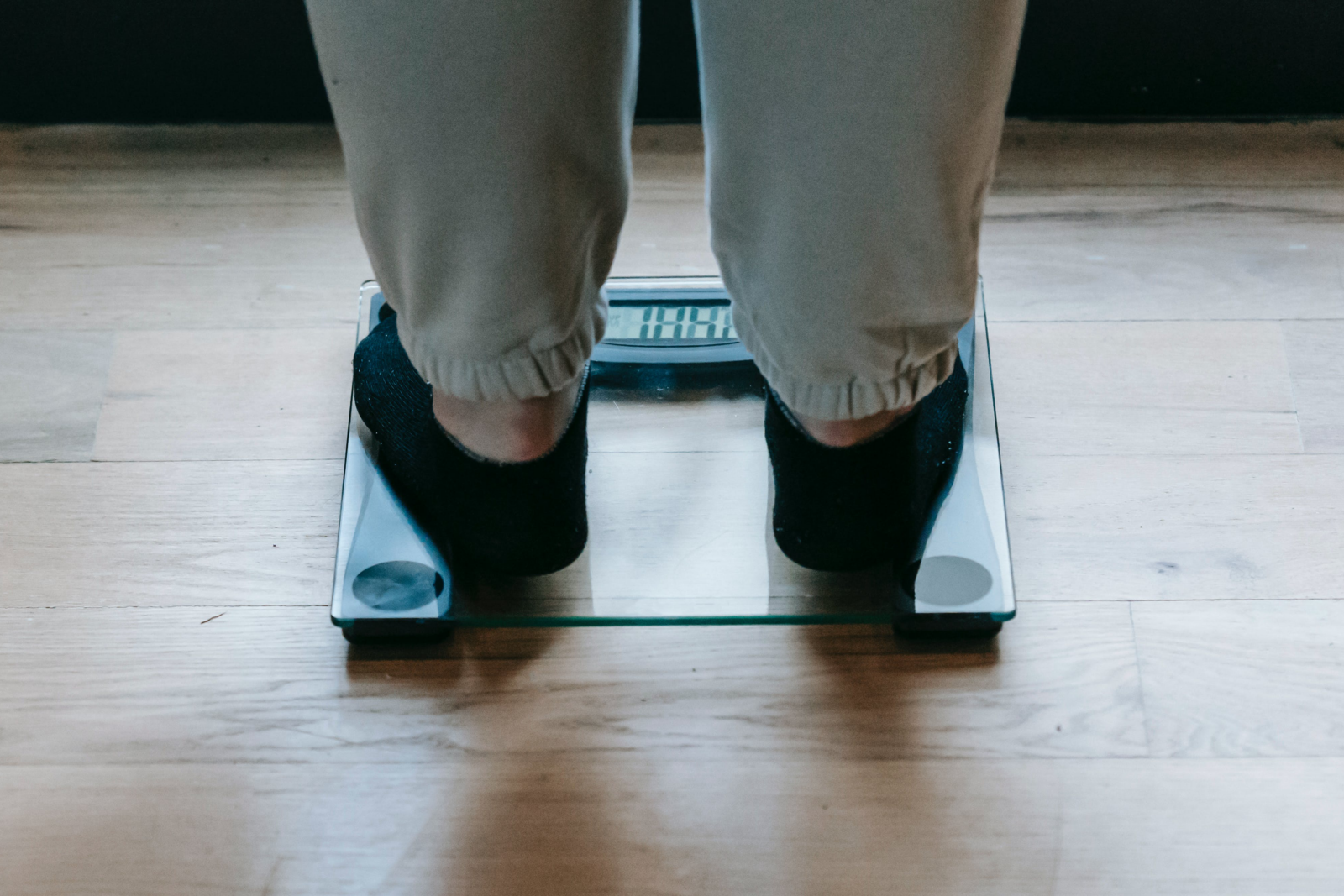Good morning.
Elon Musk was rightly in chest-pounding mode yesterday after SpaceX secured a returning booster rocket as smoothly as Francisco Lindor fielding a soft line drive. Last week, however, it was investors pounding another one of Elon’s ventures.
On Thursday, during Tesla’s “We, Robot” event, Musk unveiled the Cybercab — a self-driving two-seater that’s expected to cost just $30,000 and be produced before 2027 — to a truckload of questions. Where will they be built? What are Tesla’s near-term goals on its fully self-driving tech? The company’s stock fell more than 8% by the time markets opened on Friday, and by the end of the day, Tesla had lost roughly $60 billion in value. At least those robots looked pretty cool pouring drinks.
Weight-Loss Drugs Might Not Tank Medicare After All

Federal spending won’t bulge nearly as much as expected if Wegovy starts shrinking Medicare recipients’ waistlines.
Last week, the Congressional Budget Office released new projections estimating that Medicare will spend tens of billions of dollars over nine years to cover weight-loss drugs such as Novo Nordisk’s Wegovy and Eli Lilly’s Zepbound for elderly Americans. As eye-popping as that sounds, it’s lower than the catastrophically large figures many experts had feared. Is it a sign that the weight-loss drug bottleneck is starting to ease?
Skinny Down
Obesity affects roughly 42% of US adults, according to the Centers for Disease Control. And roughly 6% of US adults have used or are currently using injectable drugs to lose weight, according to a Gallup poll from May. But unlike with Ozempic and Mounjaro — both prescribed to patients battling diabetes — insurance companies have thus far been reluctant to offer widespread coverage of the costly anti-obesity drugs. Medicare is no different — and in fact, can legally only cover Wegovy or Zepbound if a patient suffers from another comorbidity, like heart failure.
It should come as no surprise then that Eli Lilly and Novo Nordisk have pushed lawmakers to include broad coverage under Medicare: A related bill is currently working its way through the House of Representatives. But experts fear the steep costs of both treatments — the wholesale price of Wegovy is around $1,350 per month — could bankrupt Medicare. Eli Lilly and Novo Nordisk, on the other hand, have preached that the very nature of their drugs makes patients healthier, thus reducing costs overall. Last week’s CBO figures suggest the truth is somewhere in the middle:
- Costs would increase from around $1.6 billion in 2026 to $7.1 billion in 2034. In total, coverage would cost around $35 billion over nine years, the report found.
- Cost savings on other drugs and treatments would increase too, however, from around $50 million in 2026 to $1 billion in 2034. Net Medicare spending on prescription drugs is expected to hit around $120 billion this year.
The projections are “far less catastrophic” than “the borderline doomsday scenarios” some had feared, Benedic Ippolito, a senior fellow at the American Enterprise Institute, told the Financial Times.
Health Competition: “The most effective way to reduce prices in the near future is through increased competition,” Ethan Pickner, founder of AZ Health Insurance Brokers, told The Daily Upside. That’s easier said than done. Zepbound officially came off the US Food and Drug Administration’s shortage list earlier this month, meaning competitors selling knock-off compound versions will soon have to halt sales (though Wegovy remains shortage-listed). Still, some biopharma firms are racing to crack the next generation of weight-loss drugs — meaning more competition may be on the horizon.
RYSE and Shine: Don’t Sleep On This Investment Opportunity
Remember when smart-home tech company RING pitched on Shark Tank at a $7 million valuation and got turned down, only to sell to Amazon for over $1 billion five years later? That $700K offer would have turned into $100M!
A similar opportunity is emerging in the smart shades market with RYSE. When they appeared on Dragon’s Den (Canada’s version of Shark Tank), they walked away with two offers. And their potential could far exceed RING’s, with the smart home market expected to grow 23% annually through 2031.
RYSE’s recent retail deal with Best Buy, launching their product in 120+ stores, puts them miles ahead of the competition.
Invest in RYSE alongside the Dragons at just $1.75/share before their retail expansion takes off.
Boeing Tries to Bury 17,000 Layoffs in Friday News Dump Extraordinaire
The idea behind putting out a press release with bad news at 4:30 p.m. on a Friday is fewer headlines, less attention. But you can’t sneak past this newsletter, even if it’s just more bad news about Boeing.
The embattled aviation giant put the so-called Friday News Dump trick to the test over the weekend, announcing a mammoth 17,000 layoffs, a year delay to the launch of its 777X passenger jet, and billions in charges related to ongoing labor strikes just after New York markets closed.
History Not Worth Making
Boeing’s woes are too many to list at this point: technical failures, production delays, three CEOs in less than five years. When Boeing pleaded guilty in July to fraud charges related to deadly 737 Max crashes in 2018 and 2019, The Economist dubbed it the “corporate equivalent of a criminal.”
The latest bad news comes down to deteriorating financials: Boeing said it expects its Commercial Airlines division to book pre-tax charges of $3 billion in the third quarter, and its Defense business to write down another $2 billion. The company put part of the blame on the 33,000 union machinists who have been on strike for around a month demanding better compensation. “Our business is in a difficult position, and it is hard to overstate the challenges we face together,” CEO Kelly Ortberg said in a letter to employees announcing the layoffs, amounting to 10% of its workforce. Things could get uglier still:
- S&P Global ratings, which estimates Boeing is losing $1 billion per month on the strike, put the company on CreditWatch Negative last week, which is how ratings agencies let you know they’re thinking about downgrading your debt to junk. If two of the three major ratings agencies did that, the lion’s share of Boeing’s $58 billion in debt (as of the second quarter) would be removed from investment-grade indices, meaning they’d be stuck paying higher yields to investors.
- JPMorgan said in a note that Boeing could “become the largest fallen angel on record,” referring to a term for one-time investment-grade issuers that end up with a junk rating, noting a junk downgrade of Boeing’s $52 billion of index-eligible debt would narrowly top the downgrade of Ford’s $51.7 billion in 2020.
No Love Lost: And what of the contract negotiations with the striking machinists that Boeing says are a major contributing factor to its latest slide? They’re not going well. Boeing walked away from the third round of talks on Tuesday: Both sides have accused each other of violating the law by bargaining in bad faith. The company went so far as to make its charge official with a complaint to the National Labor Relations Board on Thursday.
EY Delays New Hires’ Start Dates Due to Lackluster Deal Environment
Maybe Ernst & Young should have hired a consultant before making any promises.
The Big Four accounting firm informed around 200 recent graduates hired for its Parthenon advisory division that their start dates have been postponed until mid-2025, blaming a slowdown in M&A and private equity activity, the Financial Times reported.
Deal or No Deal
Delaying start dates isn’t new for EY — the company did it twice last year. But the current pushbacks, coupled with a reduction in internship slots for the upcoming summer, highlight ongoing uncertainties and revenue growth challenges within the consulting industry.
While the pandemic was a boon for professional services firms — due to increased demand for expertise in restructurings and buyouts — those days are long gone. EY, along with other major firms, is now adjusting to a downturn in demand for its services:
- Year-to-date, M&A deals in the US have surpassed $1 trillion, up 20% from 2023, according to LSEG data reported by Axios. So far, so good.
- However, in the third quarter, M&A deal values fell to $312.6 billion — a 15% drop year-over-year and the second consecutive quarter of YoY declines. So far, about 8,550 US deals have been announced this year, a 29% drop from 2023.
Plus, M&A activity typically slows during election seasons as CEOs await clarity on regulatory and economic changes that might follow.
The PE landscape is also mixed. Deal counts are down 4%, while deal values have increased by 10% year-to-date, law firm Ropes & Gray said in a post.
Pick Back Up Again: There is hope for a rebound in deal activity. The Federal Reserve has begun cutting interest rates, aiming for a range of 3.5%-3.75% by June of next year, which would lower borrowing costs, stimulate investment, and raise the need for professional services.
As for those prospective EY hires, the firm is providing them with stipends before they join the rank-and-file: Amounts range from $12,000 to $35,000, depending on the workers’ original start date and highest level of education, the FT reported. Not a bad deal.
Extra Upside
- Stylish Fido: Crocs’ latest limited-time product is shoes for your dog.
- Set up shop: Chinese carmaker explores producing vehicles in Europe to avoid tariffs.
- Gain Insight on the Global Economy. Sign up for the free Quartz Daily Brief and join over half a million readers who turn to this newsletter to see where business, tech, and culture intersect. Sign Up.*
* Partner

